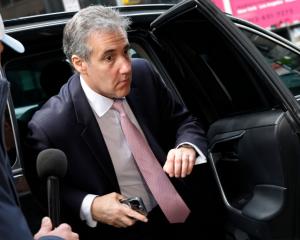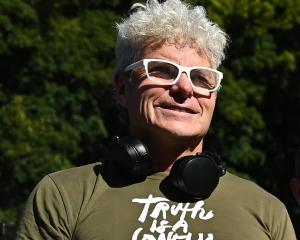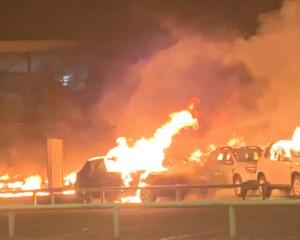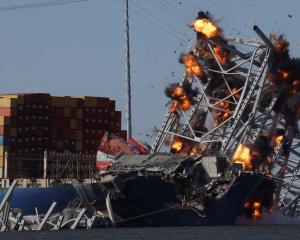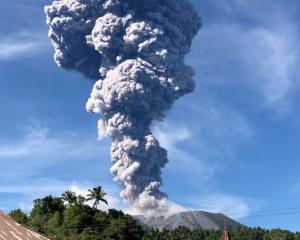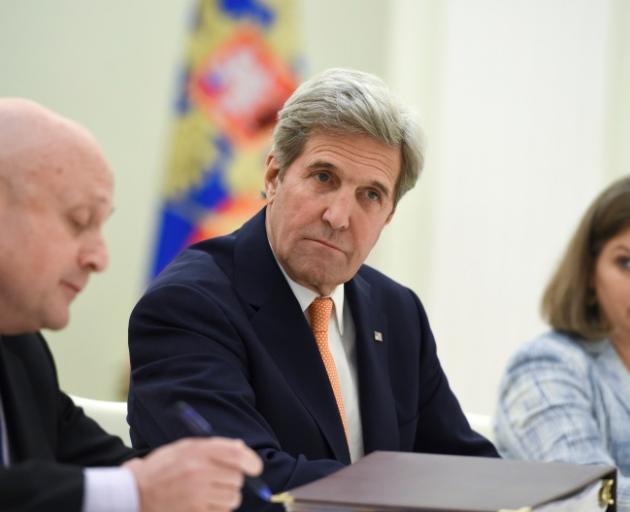
US Secretary of State John Kerry has taken a proposal to boost military and intelligence cooperation against Islamic State and al Qaeda in Syria to Moscow, despite doubts among American defence and intelligence officials.
United States officials described the visit as a test of Moscow's willingness to use its influence on the Syrian government to help revive the country's peace process, and time was running out for that.
Kerry met President Vladimir Putin at the Kremlin on Thursday evening and both said before the meeting they hoped they could make progress on Syria. Kerry was also to meet Russian Foreign Minister Sergei Lavrov on Friday.
Putin said his last conversation with US President Barack Obama had convinced him that both sides were sincere in the efforts to find a solution in Syria.
"I hope after today's consultations you'll be able to advise him of the progress made and possible headway for us to make," he told Kerry, according to a pool reporter at the start of the talks.
Kerry said Obama thought his last call with Putin was "constructive."
"Hopefully we'll be able to make some genuine progress that is measurable and implementable and that can make a difference in the course of events in Syria," Kerry said.
The extent of coordination with Russia proposed by Kerry and set out in a leaked US document published by the Washington Post would represent a major shift after years of rivalry between Washington and Moscow, who support opposing sides in Syria's five-year civil war.
The document called for intelligence sharing to identify leadership targets, training camps, supply lines and headquarters of the Nusra Front, al Qaeda's affiliate in Syria.
Strikes against those targets could be carried out by US or Russian jets and expanded coordination would be channelled through a Joint Implementation Group based in the vicinity of the Jordanian capital Amman.
The US and Russia would establish separate headquarters and a shared coordination office, where they would deploy senior officials, intelligence personnel and experts in strike planning and targeting.
They would decide on a date to simultaneously begin strikes against Nusra Front targets and to stop all Syrian military air activities in designated areas, except for non-combat purposes and against areas where Nusra Front has acquired territory.
The proposal also allows for Russia to use air power to defend Syrian forces from attack from Nusra Front within a designated area, if agreed in advance with the US.
Kerry declined to comment when asked about the document before leaving for Moscow.
HUMANITARIAN ACCESS
Kremlin spokesman Dmitry Peskov said he would refrain from comment until Russian officials had heard from Kerry. He said in general Russia favoured cooperation with the US over Syria, while the RIA news agency quoted Foreign Ministry spokeswoman Maria Zakharova as saying that Moscow was not satisfied with the current pace of this.
A senior US official said Kerry would discuss how to deal with Islamic State and al Qaeda in Syria, as well as efforts to reduce the violence, allow humanitarian access and move towards political transition.
"At present we are not conducting or coordinating military operations with Russia, nor is it clear we will reach an agreement to do so," the official said.
US officials said there were two major problems leading to the breakdown of Syria's cessation of hostilities - the failure of the Syrian government to respect it and Nusra Front activity.
Kerry faces some strong opposition to his efforts to woo Russia from US defence and intelligence officials who say Washington and Moscow have diametrically opposed objectives in Syria.
The trip, his second to Moscow this year, comes amid a worsening of US-Russian ties due to tit-for-tat diplomatic expulsions, US allegations of aggressive Russian manoeuvres toward American aircraft and vessels and what Washington has said is a disregard for a cessation of hostilities in Syria, where Russia has bombed US-backed rebels.
Relations also remain strained over Ukraine and what the Kremlin considers NATO's unjustified activity along its borders. That has raised fears that disagreements could escalate into confrontations, either accidental in Syria or the result of miscalculations in the air and naval encounters elsewhere.

